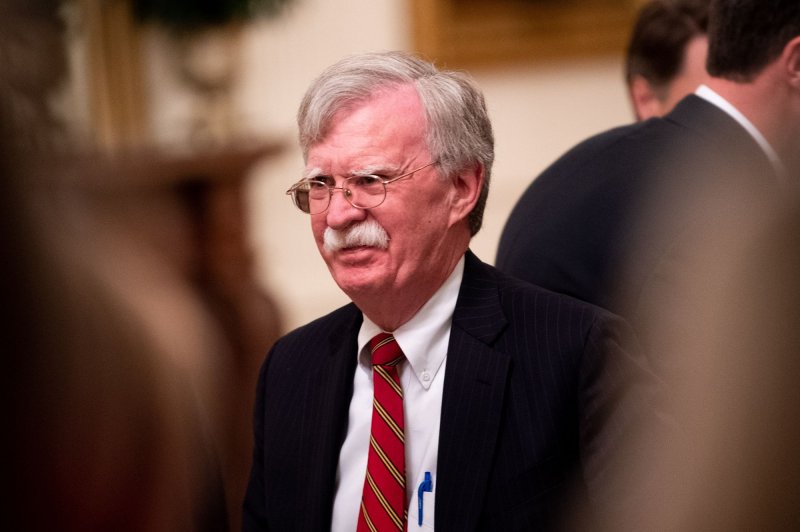White House national security advisor John Bolton is in South Korea this week. File Photo by Kevin Dietsch/UPI |
License Photo
July 23 (UPI) -- U.S. national security adviser John Bolton arrived in Seoul on Tuesday following a stopover in Tokyo.
Bolton, who had recently met with Japan's Defense Minister Takeshi Iwaya and Japanese Foreign Minister Taro Kono in Japan, suggested he plans to discuss South Korea's involvement in U.S. strategy.
"Wonderful to be back in Seoul so soon and looking forward to productive meetings with the leadership of our important ally and partner so vital to Indo-Pacific security and prosperity," Bolton tweeted on Tuesday.
The top White House aide arrived at Osan Air Force Base around noon, South Korean news service Money Today reported.
On Wednesday, Bolton is expected to meet with his South Korean counterpart Chung Eui-yong, Seoul's Foreign Minister Kang Kyung-hwa, and Defense Minister Jeong Kyeong-doo.
The U.S. official is expected to discuss the denuclearization of the Korean Peninsula, a "peace settlement," and South Korea-Japan relations, according to Money Today.
Bolton could stress the importance of the trilateral security cooperation of Seoul, Tokyo and Washington, according to the report. Korea and Japan have been locked in a trade dispute.
Speculation is rising in Seoul whether the United States could request South Korea join U.S. forces in the Strait of Hormuz in the Middle East.
South Korea's foreign ministry is "reviewing" possible ways of joining forces with the United States in the shipping channel, Newsis reported Tuesday.
"We will move forward with a review involving various ministries, with multiple options in mind," Seoul said, according to the report.
U.S. President Donald Trump has previously said oil importers like Japan and China should defend their own ships in the Strait of Hormuz, rather than relying on U.S. military power to guard against attacks.
Japan may be postponing a final decision on involvement.
Iwaya said in Tokyo on Tuesday the situation in the Middle East does not call for the deployment of Japan's self-defense forces, NHK reported. He stressed diplomacy instead.
Last week the Japanese defense chief said it has no plans to deploy its military.















